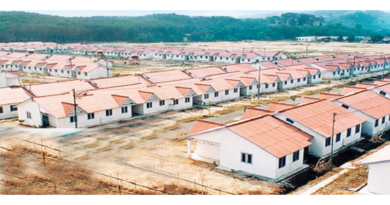FAO launches new tools for reporting on world’s forest resources
The Food and Agriculture Organisation (FAO) on Monday March 5, 2018 launched a new online platform for reporting on the status and trends of the world’s forest resources. The platform enables countries to increase the efficiency of their reporting process and improve the consistency, reliability and transparency of forest data.
Efficient monitoring of and reporting on forest cover and land-use change is essential for monitoring progress towards the Sustainable Development Goals (SDGs) and is crucial as countries adopt measures to adapt to and mitigate climate change.
The platform will be used for the next 2020 Global Forest Resources Assessment (FRA) report. The tool developed by FAO with financial support from the European Union and the Government of Finland was presented at a special high-level ceremony in Toluca, Mexico.
“Assessing the state of the world’s global forest resources requires consistent and reliable data,” said FAO Senior Forestry Officer Anssi Pekkarinen. “The new platform allows countries to improve their capacity to compile up-to-date and precise forest data, reduces reporting burden, and allows to better measure progress towards the 2030 Agenda.”
The new tool contains a number of new features including improved data entry and data visualization, and review and analysis functions. The platform has a more user-friendly interface, which allows adding data, copying and pasting from existing entry sheets and documenting national data sources.
For the first time since FRA 2000, the number of assessment variables has been significantly reduced which eases the reporting burden for countries.
To further facilitate the reporting process, especially for countries where forest information is limited or not available, the platform provides the opportunity to access related external information as well as geospatial data from global remote sensing products.
The platform uses Google Earth Engine and for the first time will provide all 171 FRA National Correspondents – officially nominated national forest authorities who are responsible for compiling the country reports – as well as their collaborators free access to vast global data repositories and analytical tools alongside the computing power of Google.
“This announcement builds on our productive three year partnership with FAO that we signed at COP 21 in Paris,” said Rebecca Moore, Director, Google Earth, Earth Engine & Earth Outreach. “We are excited to enable all countries with equal access to the latest technology in support of global climate action and sustainable development.”
The tool makes it easy even for people without prior remote-sensing experience to access satellite imagery and other geospatial data to monitor national forest cover and land-use changes over time.
Reporting on progress towards the SDGs
The scope of the new platform is not limited to forest assessments only. It serves other reporting needs as well, including its significant contribution to the implementation of 2030 Agenda and to the forest related indicators of the Sustainable Development Goals (SDG).
70th anniversary of FRA
The FAO’s Global Forest Resources Assessment celebrates its 70th anniversary this year. A new publication also launched in Toluca today describes the history of global FRA and summarizes the achievements made.
The FRA is produced every five years through an inclusive and country-driven process and it is the most comprehensive analysis on the world’s forests resources and their changes to date. The scope of FRA has evolved from timber-focused inventories to more holistic assessments responding to increasing information needs related to all aspects of sustainable forest management. Altogether 236 countries and territories 171 of which have nominated their National Correspondents are involved in FRA 2020 process.




